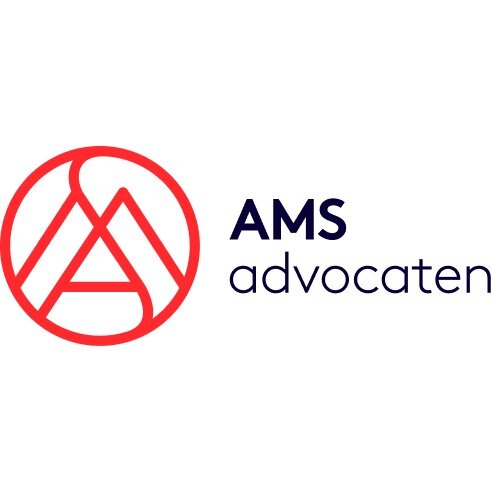Best Real Estate Lawyers in Netherlands
Share your needs with us, get contacted by law firms.
Free. Takes 2 min.
Free Guide to Hiring a Real Estate Lawyer
Or refine your search by selecting a city:
List of the best lawyers in Netherlands
About Real Estate Law in Netherlands
Real estate law in the Netherlands is a complex field that governs the ownership, use, and transfer of land and properties. It encompasses various legal areas, including property law, contract law, tax law, and environmental regulations. The Dutch real estate market is known for its stability and transparency, making it an attractive option for both local and international investors. However, navigating the legal landscape requires an understanding of several specific local regulations and procedures.
Why You May Need a Lawyer
Engaging a lawyer when dealing with real estate matters in the Netherlands is often crucial due to the complex and varied nature of transactions and regulations. Common situations that may require legal assistance include:
- Buying or selling property, where lawyers ensure the transaction complies with Dutch law.
- Exploring cross-border real estate investments, which can involve multiple legal jurisdictions.
- Drafting and reviewing contracts or lease agreements to safeguard against potential disputes.
- Handling disputes over property boundaries, ownership, or tenant rights.
- Navigating zoning laws and environmental regulations impacting property use and development.
- Tax planning to optimize financial benefits related to real estate transactions.
Local Laws Overview
The Netherlands operates a well-structured and detailed legal system for real estate that includes the following key aspects:
- Ownership Rights: Dutch law recognizes full ownership, leasehold, and apartment rights with specific rules governing each.
- Transfer of Property: Transactions must be notarized, and land registration is mandatory with the Dutch Land Registry (Kadaster).
- Zoning and Planning: Municipalities control land use through zoning plans, affecting how properties can be developed or utilized.
- Taxation: Purchases are subject to real estate transfer tax, and owners must also consider property tax, income tax, and VAT implications.
- Environmental Regulations: Strict laws ensure sustainability and environmental protection throughout real estate projects.
Frequently Asked Questions
1. Do I need a real estate agent to buy property in the Netherlands?
No, it is not mandatory, but a real estate agent can provide valuable market insights and assist in negotiations.
2. What are the closing costs for purchasing a house?
Typically around 2-4% of the purchase price, covering notary fees, land registry fees, and transfer tax.
3. Can foreigners buy property in the Netherlands?
Yes, there are no legal restrictions on foreigners owning property in the Netherlands.
4. What tax implications arise from selling a property?
The main concern is the capital gains tax if the property is not your main residence.
5. Is a property survey mandatory?
While not mandatory, a survey can uncover potential issues that could affect property value or livability.
6. What is a ground lease (erfpacht)?
A system where the ground is leased from the owner, usually the municipality, while the property above is owned by the leaseholder.
7. What are service costs (VvE contribution)?
The maintenance fee apartment owners pay for shared expenses in a building.
8. How long does a property transaction typically take?
From sale agreement to final transfer can take 8-12 weeks, but timing can vary.
9. Are there protections for tenants renting a home?
The Dutch rent laws strongly protect tenants, who have rights to security, reasonable rent increases, and suitable housing conditions.
10. Can I convert my home for commercial use?
Generally, this requires permission from local authorities, guided by zoning laws and regulations.
Additional Resources
For more information or assistance, consider the following resources:
- Netherlands Bar Association: For finding certified real estate lawyers.
- Kadaster: Offers land registry and cadastral services.
- Belastingdienst: The Dutch Tax and Customs Administration for tax-related inquiries.
- Municipal Housing Departments: Provide guidance on local zoning regulations and resident services.
- Vereniging Eigen Huis: An organization offering support for homeowners in the Netherlands.
Next Steps
If you need legal assistance in real estate, consider the following steps:
- Research and list your specific legal needs regarding your real estate project or transaction.
- Contact a qualified real estate lawyer in the Netherlands, preferably one with experience relevant to your situation.
- Prepare relevant documents and information before your initial consultation to maximize productivity.
- Discuss potential costs upfront to understand the financial commitment involved in legal services.
- Follow up with recommended government bodies or organizations for additional guidance if necessary.
Engaging the right legal expertise can help ensure your real estate endeavors in the Netherlands are well-protected and aligned with local laws.
Lawzana helps you find the best lawyers and law firms in Netherlands through a curated and pre-screened list of qualified legal professionals. Our platform offers rankings and detailed profiles of attorneys and law firms, allowing you to compare based on practice areas, including Real Estate, experience, and client feedback.
Each profile includes a description of the firm's areas of practice, client reviews, team members and partners, year of establishment, spoken languages, office locations, contact information, social media presence, and any published articles or resources. Most firms on our platform speak English and are experienced in both local and international legal matters.
Get a quote from top-rated law firms in Netherlands — quickly, securely, and without unnecessary hassle.
Disclaimer:
The information provided on this page is for general informational purposes only and does not constitute legal advice. While we strive to ensure the accuracy and relevance of the content, legal information may change over time, and interpretations of the law can vary. You should always consult with a qualified legal professional for advice specific to your situation.
We disclaim all liability for actions taken or not taken based on the content of this page. If you believe any information is incorrect or outdated, please contact us, and we will review and update it where appropriate.
Browse real estate law firms by service in Netherlands
Netherlands Attorneys in related practice areas.
Browse real estate law firms by city in Netherlands
Refine your search by selecting a city.

















